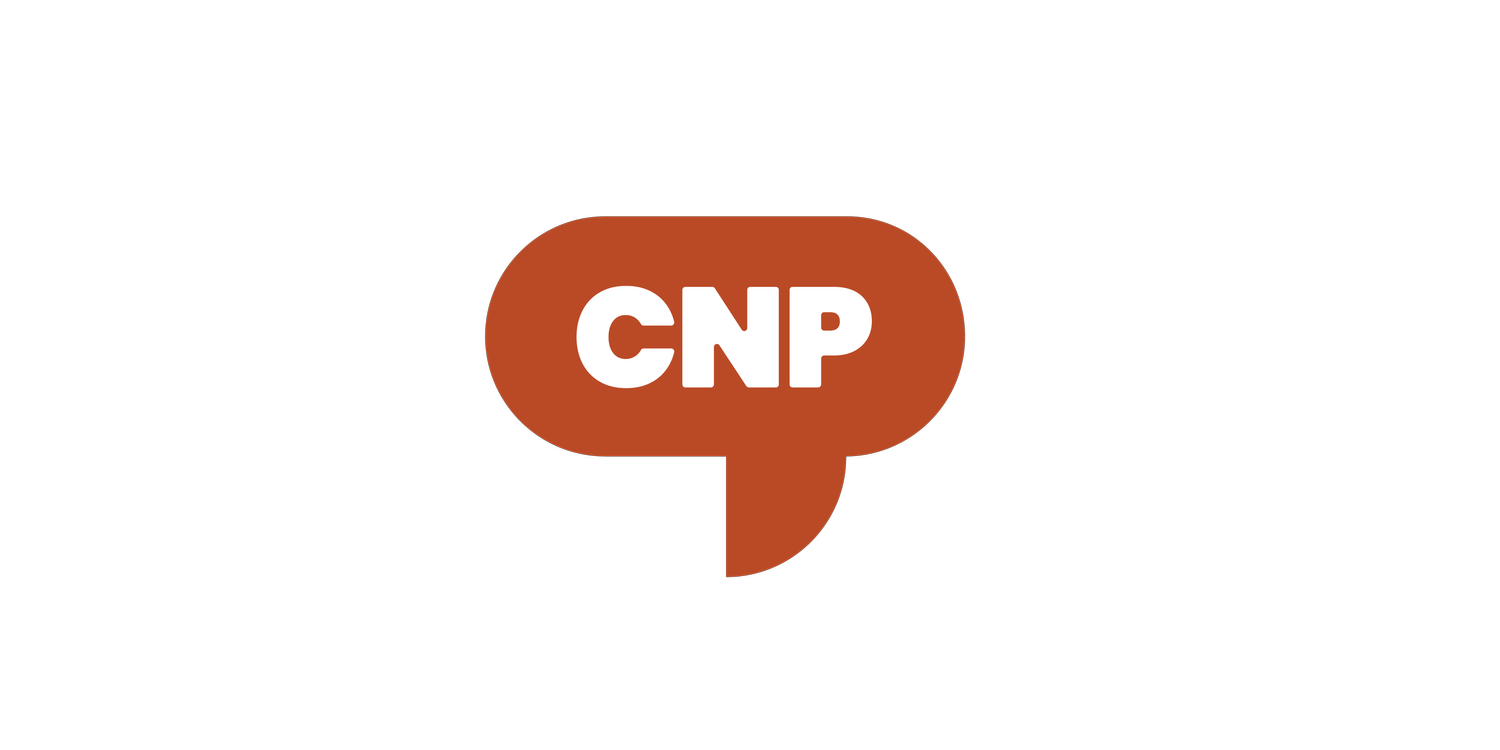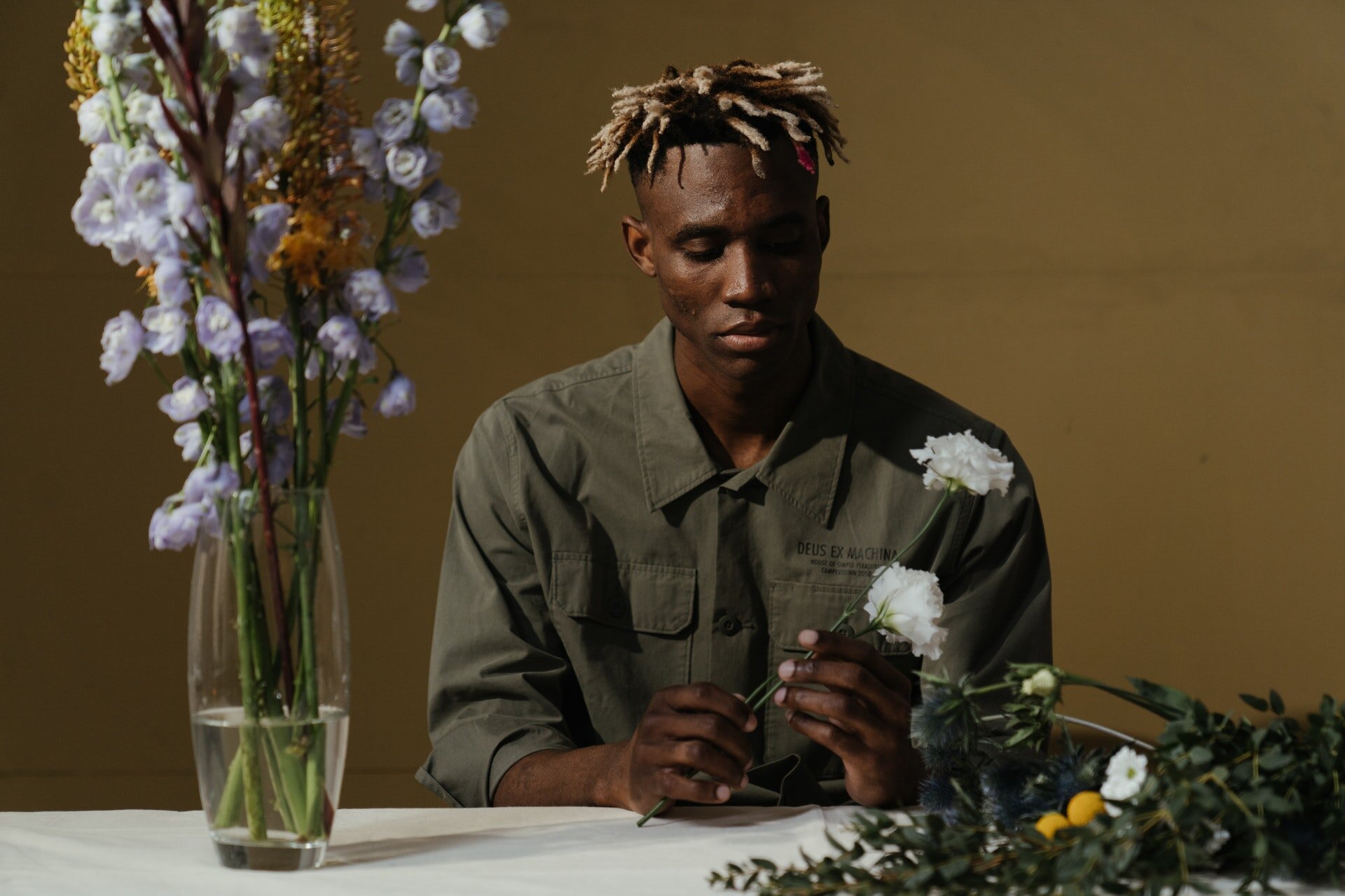
Overview
Topic: The COVID-19 pandemic’s impact on Black gay men
Organization: Counter Narrative Project, www.thecounternarrative.org
The Counter Narrative Project is a non-profit organization was founded in 2014 by Charles Stephens to amplify the voices of Black gay men to shift the public narrative and give this community and its allies a political home.
Location: Atlanta, Georgia
Recording Date: November 2020 - December 2020
2020 was a collectively challenging year: The onset of the COVID-19 pandemic March 2020, racial justice protests triggered by the murder of George Floyd began in May 2020, and a contentious election season that captivated the attention of Americans. Representing the community at the intersection of Black and LGBTQ, the Counter Narrative Project (CNP) found a need to swiftly pivot to engage and educate Black gay men, while protecting the lives of its staff and volunteers.
This document offers a summary of accounts narrated by CNP staff and stakeholders. The participating narrators were asked about their personal experiences during 2020 as well as their perspective of CNP around key themes, including community health, racial and social justice, and community resilience. The interviews were conducted with seven stakeholders between November and December 2020. Narrators included:
Charles Stephens, Founder and Executive Director of CNP
Johnnie Ray Kornegay III (Johnnie Kornegay), Creative Director of CNP
Darian Aaron, Communications Director of CNP; Editor-At-Large of CNP’s online publication, The Reckoning
Dr. Quintin Robinson, Infectious Disease Specialist; CNP collaborator
Michael Ward, Host of CNPs Revolutionary Health series
Monte J. Wolfe, Writer, Director and Theatrical Professional; CNP collaborator
Justin C. Smith, CNP collaborator; former member of the CNP Advisory Committee
The following retrospective summary is structured chronologically and is oriented around the following themes:
A Hopeful Outlook (January 2020)
The Beginning of COVID-19 (March 11 – 20, 2020)
Informing the Community (March 2020)
Fighting Back (April 2020)
CNP Embraces Zoom Theatre (June 2020)
The CNP COVID-19 Survey (July 2020 to December 2020)
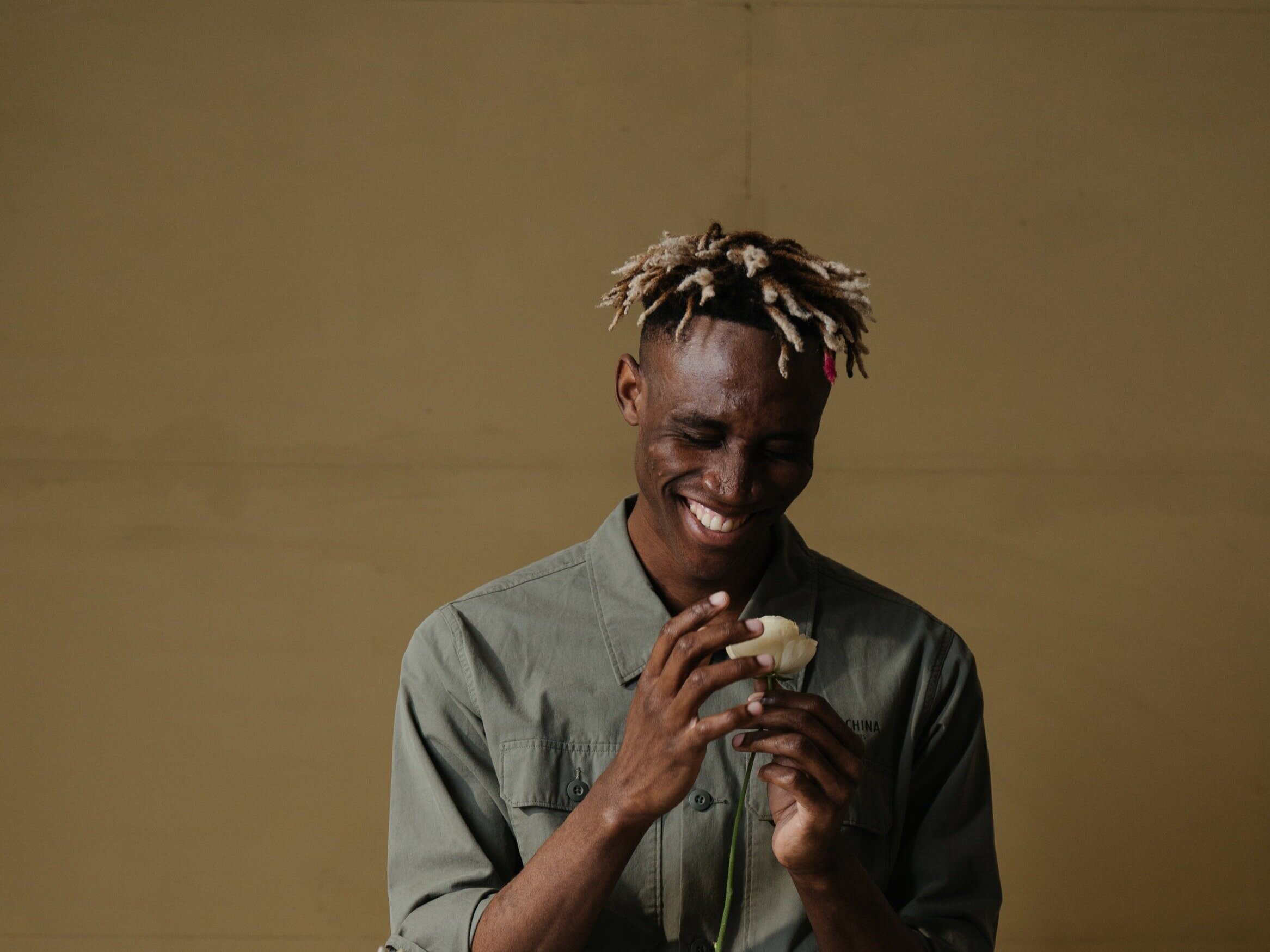
A Hopeful Outlook (January 2020)
In January 2020, CNP hosted the first-ever CNP Summit, a leadership conference intended to engage members of the CNP community. The signature event provided an opportunity for CNP’s community to meet and plan the organization’s initiatives throughout the year. Johnnie Kornegay III and Justin Smith offer accounts on the event.
Johnnie Kornegay:
So last November [2019], my mother went into the hospital and that Saturday, I hopped on a plane and came to my hometown to check in on her and never returned to Atlanta. And so my life was rapidly changing, and CNP, in all of Charles's glory and graciousness, gave me time and gave me space to figure out what I was going to do and where I was going to be with CNP at the end of 2019. And so coming into 2020 was still feeling very new for me personally. And the first thing out of the gate coming into 2020 was flying back to Atlanta for our first CNP summit, as well as our showcase at the NAESM annual conference. The CNP summit was exactly what I needed to start the year...
Justin C. Smith:
So it's kind of like the first convening of the year. And so in years past has been a nice way, kind of like a New Year's resolution, where you sort of get grounded in what the year ahead looks like. And unfortunately, because of how 2020 played out, a lot of the things that I think folks were excited about and were hoping to make possible just didn't happen because of COVID. But I think there were some powerful moments. I think for me, the things that stood out from that Summit were, well, three things. We had a really powerful keynote address from Jasmyne Cannick, who is a journalist and activist in Los Angeles, and she had been doing a lot of work with and has been a really strong ally to Black gay men. She's a Black queer woman herself, and had been doing really important investigative journalism around the Ed Buck story. Ed Buck is a wealthy Democratic donor who had been luring young Black gay men to his house to have sex with them and give them drugs. And several of these young men died at his house. And so Jasmyne was really central to keeping media attention on this conversation. And again, given the role that I had in working with CNP to organize a screening of the film “ParTy Boi” in Atlanta, a film in which the mother of one of the young men who died at Buck's home was interviewed, so that was kind of a through-line from programming that CNP had done the year before. And that was a conversation we had. We also had an excerpt of a theater production that was going to be planned by CNP. That didn't happen because of COVID, “The Brothers Size.” The actors from the play came and did a staged reading of a couple of scenes from the play. And it was really incredible. Unfortunately, because of COVID, we couldn't actually go through with executing the play. And then the third thing was the Essex Hemphill poetry sharing that happened in the NAESM conference. So those are the three things that really stood out for me about the CNP Summit this year.
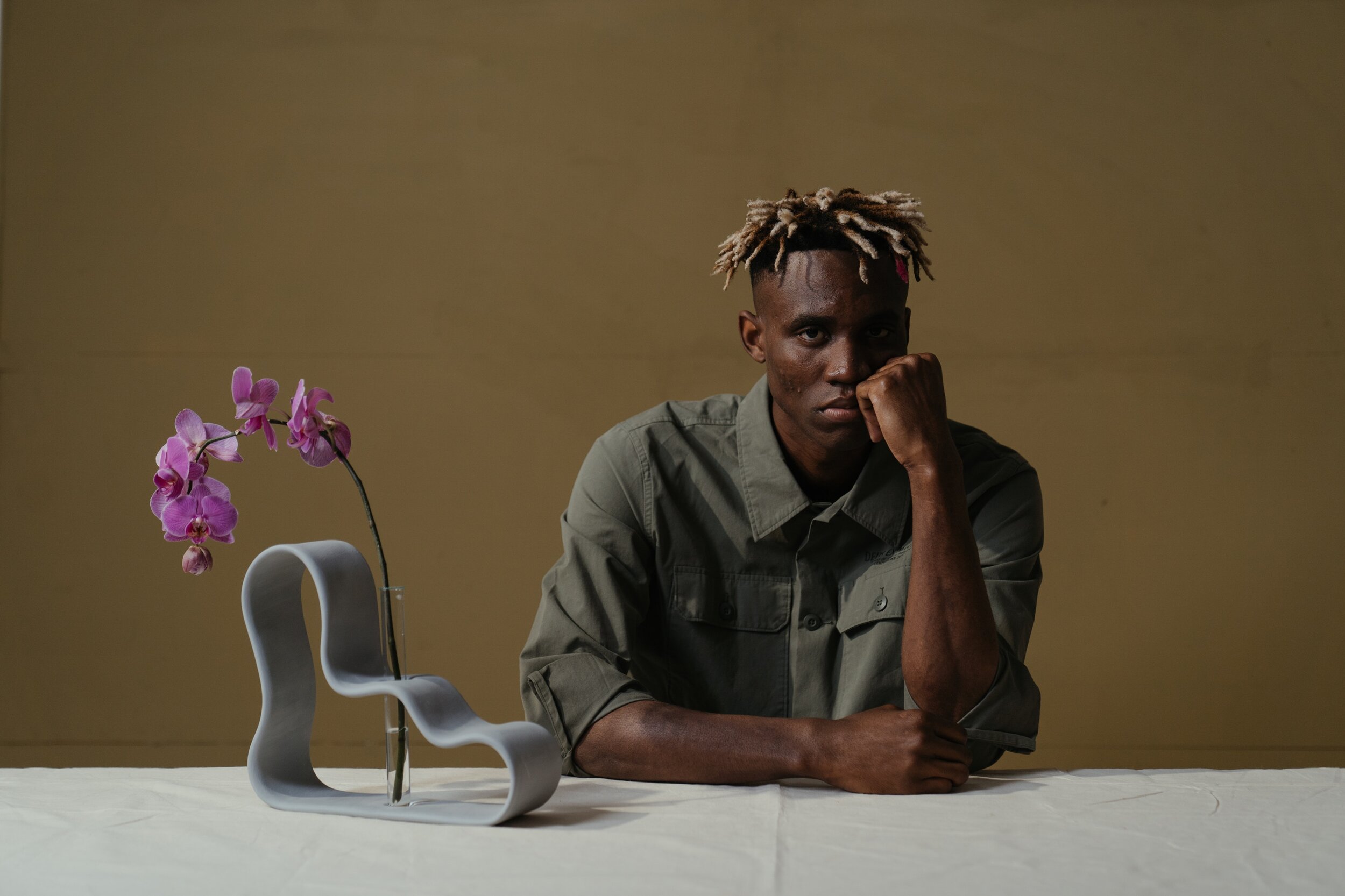
The Beginning of COVID-19 (March 11 – 20, 2020)
In coordination with Actor’s Express, CNP spent months planning a production of the play, “Brothers Size,” which was planned for a start of Saturday March 20, 2020. The event was canceled due to COVID-19. Meanwhile, other CNP collaborators were having their world expectedly upended by the onset of COVID-19.
Charles Stephens:
In March, we were going to host an event at Actor's Express, which is a theatre company in Atlanta, Georgia, an evening at a production of "The Brothers Size." I had been looking forward to this play coming to Atlanta for such a long time. The moment the production was announced I knew I wanted CNP to be supportive. I also thought this would be a really great partnership opportunity with Actor’s Express and a continuation of CNP’s support and advocacy for Black LGBTQ art. So we were going to have CNP Night at Actor’s Express on March 20th, and I don't think I'll ever forget that day.
From early February, and definitely by March, people stopped shaking hands and started doing fist bumps. People began wearing masks and social distancing. As the crisis loomed, I had a really big decision to make leading up to this March 20th event. There were over 100 people that RSVPd to see “The Brothers Size.” We had been planning this event for months. I was really stressed out. I did not want to let Actor's Express down. I certainly did not want to let the performers down. But I could not risk any of our CNP community members getting sick. And this was before the state had shut down, before the COVID-19 rates had shot through the roof. This was when we were terrified but hoping things would not be as bad as we feared. Of course things turned out not only as bad as we imagined, but perhaps much worse. At least that was the case for me.
All I could think was if someone went to this event hosted by CNP and got COVID-19, I would never forgive myself. Finally, I think, like maybe the Friday before the week of the event, we made the call not to move forward. I let everyone know that we were cancelling.
Monte J. Wolfe:
Being a theatre professional, and somebody who works freelance, I had a lot of work lined up between March, April and May. By March 13th, everything had been canceled, contracts I already had signed and money I had lined up, gone. Then my other job with the Kennedy Center, I found out that I was being laid off by the end of the month. Around that time, Charles actually asked me to do a COVID profile, within a week or two of COVID hitting, talking about how it was impacting us. I said yes, as I always do with anything that he asks me to do. But I remember when I got ready to write it, I almost did something which I never do, which was to just kind of glaze over or omit my full truth because I felt like it wasn't anybody's business, what was really going on. My impulse was to say “yeah, I've been laid off”, and to just talk about how you know, this was negatively impacting me. I didn't have much money saved. I didn't know how I'd make it until unemployment kicked in... all of that. So I typed it all out, then deleted it all. And it was like, no, we're going to go back and we're going to tell the truth. Because at that time I was pissed off. I was angry, I was frustrated. I told that story and I shared how I kind of went through phases in that first month about how I went from being angry to being kind of depressed and then just feeling despondent. I went from that point, to slowly becoming more active, such as when he asked me to participate in this profile. So I went from doing that, to applying for some local aid to artists in DC, which I was granted within a week of me applying, and things slowly just started to fall into place. Oddly enough, from there, in March, Charles and Counter Narrative did a tribute to Essex Hemphill, who is one of the gatekeepers and one of the key people that we all honor and who we are all inspired by. So we did some poetry reading for his birthday in April, which was done virtually. I was honored to be a part of that, and just like with everything that he had asked me to do, it just kept me in a state of being able to figure out, on the fly, how I was still going to make this thing work as an artist and as creative, while being right here in my apartment and still dealing with something that, as we all know, was unprecedented and was just really kind of turning everyone's world upside down daily and was just unfolding by the minute. So from there, I think looking back on it all now, as I'm getting ready to complete this third round of what it is that we did with this joint artistic project, you know, I realized that just as much as everything was falling apart, a lot of things artistically for me... It all just started to fall into place because it gave me an opportunity to really seriously focus just on my art. It's been an uphill battle and it's been challenging at times. But I think because of Counter Narrative, because of Charles and his belief in me and what it is that I'm capable of doing, even at a time when I didn't necessarily want to or didn't believe in myself, when I didn't know the specifics of how it was going to work, I was being given the opportunity to say, “OK, hey, do you want to do this?” And again, I wasn't going to say no. It was just an opportunity for me to be able to develop another superpower, if you will, in terms of really just trying to figure out how to make all this stuff work, virtually.
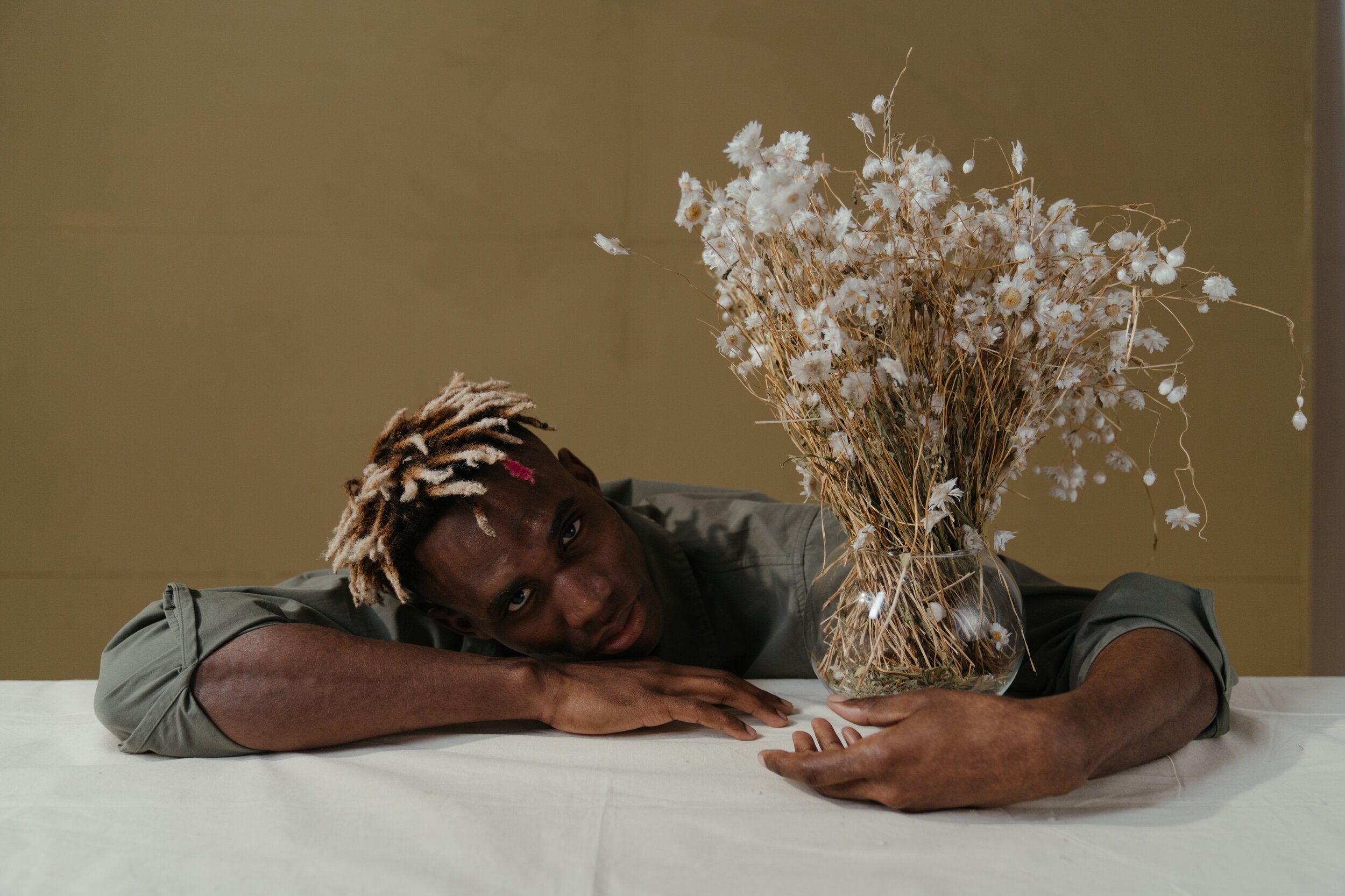
Informing the Community (March 2020)
On March 24, 2020, CNP quickly adapted their ongoing content series titled Revolutionary Health via Youtube to begin covering COVID-19 topics. This included an episode featuring one of CNP’s key staff member’s experience with getting tested for COVID-19. The series also included special edition episodes called the “Physicians Roundtable.” The series featured Black gay physicians discussing COVID-19 and the impacts on the Black gay community. The following are accounts from Michael Ward, Charles Stephens, and Johnnie Kornegay III about the special COVID-19 content. Also included are accounts from Darian Aaron and Dr. Quintin Robinson on their personal takes on the impacts on the community.
Michael Ward:
[Revolutionary Health] was started by Dr. David Malebranche and Charles Stephens to bring health information to Black gay men. So I stand on the shoulders of these incredible men who started this show. They asked me to host the show pre-pandemic, and we started rolling in studio. And then, of course, Covid-19 happened and then we moved it all to virtual. Now we're doing the show once a month live on Facebook, giving people incredible shows about COVID-19, racial and social justice issues that affect Black gay men's health and wellness, a little bit of mental health, and HIV advocacy. I'm stepping into a role I never thought I would be able to do. For them to give me an opportunity and have confidence that I could do a good job at this, I take none of that for granted.
Charles Stephens:
It was happening in the world, and we had to respond to it. And we understand that access to healthcare is a racial justice issue. So our lens is more about racial justice and all the ways that our communities are impacted by racism. And one of the ways we see communities being affected by racism is through the healthcare system, or rather the failure of the health care system to adequately support and take care of our community.
I think one of the first things we did was a “COVID-19 Check-In.” So, we invited some folks from our community to come together, and we provided a video for you to give us just talking about how we're doing in quarantine.
Johnnie Kornegay:
It shifted during COVID. It was important for us to then begin having conversations about the moment, having the discussions about our community that no one was having and finding a way to do that, using these tools that we had. So we would talk about things like what is Revolutionary Health in 2020. That included information from renowned physicians about COVID-19 when we pioneered a physicians roundtable with three Black gay doctors. They came on the show, and we recorded them talking about COVID-19 in a very real way. So it was like demystifying COVID-19 for the audience. I came on and talked about getting a COVID-19 test for example.
Michael Ward:
We did an episode on COVID-19 and intimacy. How do we keep ourselves safe during COVID-19? Because we still want to be able to date and hook up. Our episodes have been instrumental to bring up to date information to the Black gay community. We've done a HIV criminalization roundtable, a PREP roundtable, a roundtables. I love to get these different perspectives and these different minds together to really focus on solutions and how we keep this community healthy.
Darian Aaron:
The thing that has struck me the most is that...in the early days of the COVID-19 pandemic, in the early days of the HIV/AIDS pandemic, it was the fear of the unknown. There was very little fact-based information about how the disease was transmitted, who was affected by the disease, and then there was also the isolation that came along with being HIV-positive, especially in the early days of the epidemic. The isolation. The stigma. And I think a lot of COVID-positive folks, most likely experienced the same thing. I mean, we have folks who are dying alone because the disease is so contagious [background noise] and they don't want to infect their loved ones. So, they can't be with the people that they love as they are transitioning.
Dr. Quintin Robinson:
I think I will say it hit me this week. I don't know what...this week has been a rough week just on a personal and emotional level, where it's partial of working from home and doing telemedicine half the time and being in the office and seeing my patients, you know, 50 percent of the time. I think it takes a toll because you can't...at least for me, I feel like I'm not practicing medicine the way that I should be practicing medicine, which is not necessarily, you know, that actual touch, but that connection that you have with your patients. Especially, you know, I've been here in Atlanta at AbsoluteCARE for 10 years. So I have a significant relationship with patients. And, you know, some patients really rely on being in the presence of their health care provider. And I think as a provider, I also, you know, receive some of that energy as well. So I think that has been stressful. And just dealing with, you know, COVID, you know, as an ID (infectious disease) provider, COVID is something that I am definitely interested in and looks to be an expert about.
And it's kind of like, how do I talk to people who look like me and convince them, you know, that this vaccine...there's nothing different about how fast this vaccine was, you know, how fast that came about. Like, I literally make it a point to have a conversation with the patients that I see, you know, either in person or virtually, of getting feedback from them. Like what? What are your concerns about the vaccine? And what if...even if the visit has nothing to do with COVID and nothing to do with vaccines, it's just getting that feedback from our patients helps me figure out how to talk to people who look like me and convince them. If you don't get this vaccine that's probably going to be available in early 2021, there are other vaccines that are coming along, and it's kind of how do you balance that? But there you know, the thing is that I surround myself, at least in a professional setting, with other people who look like me, who have conversations like other health care providers, who are having conversations that look at other sources of information about the vaccine and kind of where we're going with it.
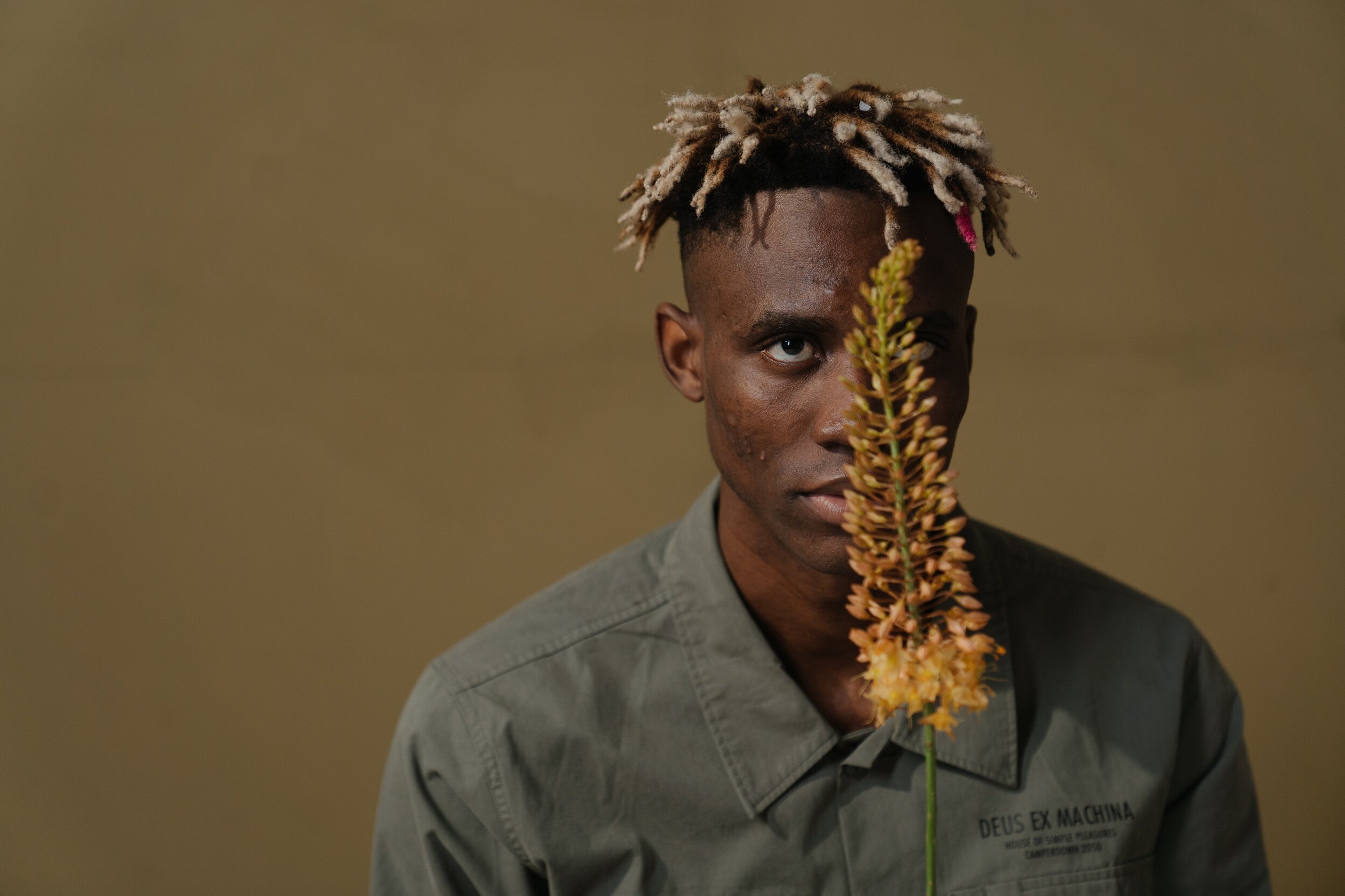
Fighting Back (April 2020)
In response to U.S. Surgeon General Jerome Adams remarks directed to Americans of color, CNP leads an effort to draft and submit an open letter to the Surgeon General. The letter included 148 signatures, including members of the medical community.
Dr. Quintin Robinson:
So that was early on in the pandemic, where we were still learning things. And it just kind of came across when Dr. Adams, as the Surgeon General, was making that attempt to relate to communities of color. And I think when we did the roundtable, we applauded him for that. However, negative reinforcement is never the way to go in medicine. So in terms of the way he talked about, big momma and pop pop, to use these terms of bringing COVID home to them. You know, admonishing people to some degree, especially early in the epidemic when we didn't know much, really felt like, "Hey, you can't really, you know...we look up to you, but you're really just wagging your finger." And we felt that it was specifically calling out people of color at the time when you look at...how transmission goes. I honestly think that most people of color now have really stuck to the guidelines of [social distancing] and mask-wearing and washing their hands.I think we felt that Dr. Adams kind of did it not necessarily the wrong way, but there could have been a different way of going about it. And we just kind of like, “Hey, Black male doctor to Black male doctor. We're going to bring you in and just talk about how we talk to each other in a different way.”...It is a medical education concept of shared decision-making, but a lot of physicians really don't utilize it effectively. They may think that they are, but it may not come across that way, so, yeah, I always tell patients I am not the one to put on my white coat, stand up in front of you, wag my finger and say this is what you're going to do. You know, it's like, “What do you want?” So I think that...the letter to Dr. Adams [was about how to] involve people in the discussion about things that involve their health care.
Johnnie Kornegay:
And the language that was being used was a huge problem because he was clearly just talking down to Black folks. And it wasn't productive in the way it was presented and the doctors were like, this is not what we need to do. To be talking to our folks, you need to have a different conversation. We need to be talking about systemic inequality. We needed to be talking about racial justice. So the doctors brought it up … And I can't remember who initiated that, I feel like it was Charles that said, do we need to get together and write him a letter from three doctors and say, here's what we have to say about this. And so there were several meetings that took place and it eventually landed on anyone who was Black and in health care needs to sign onto this open letter. And we then published the signed open letter. It's actually still on the CNP site, but we published the open letter and distributed it through the doctors’ channels as well as CNP channels...
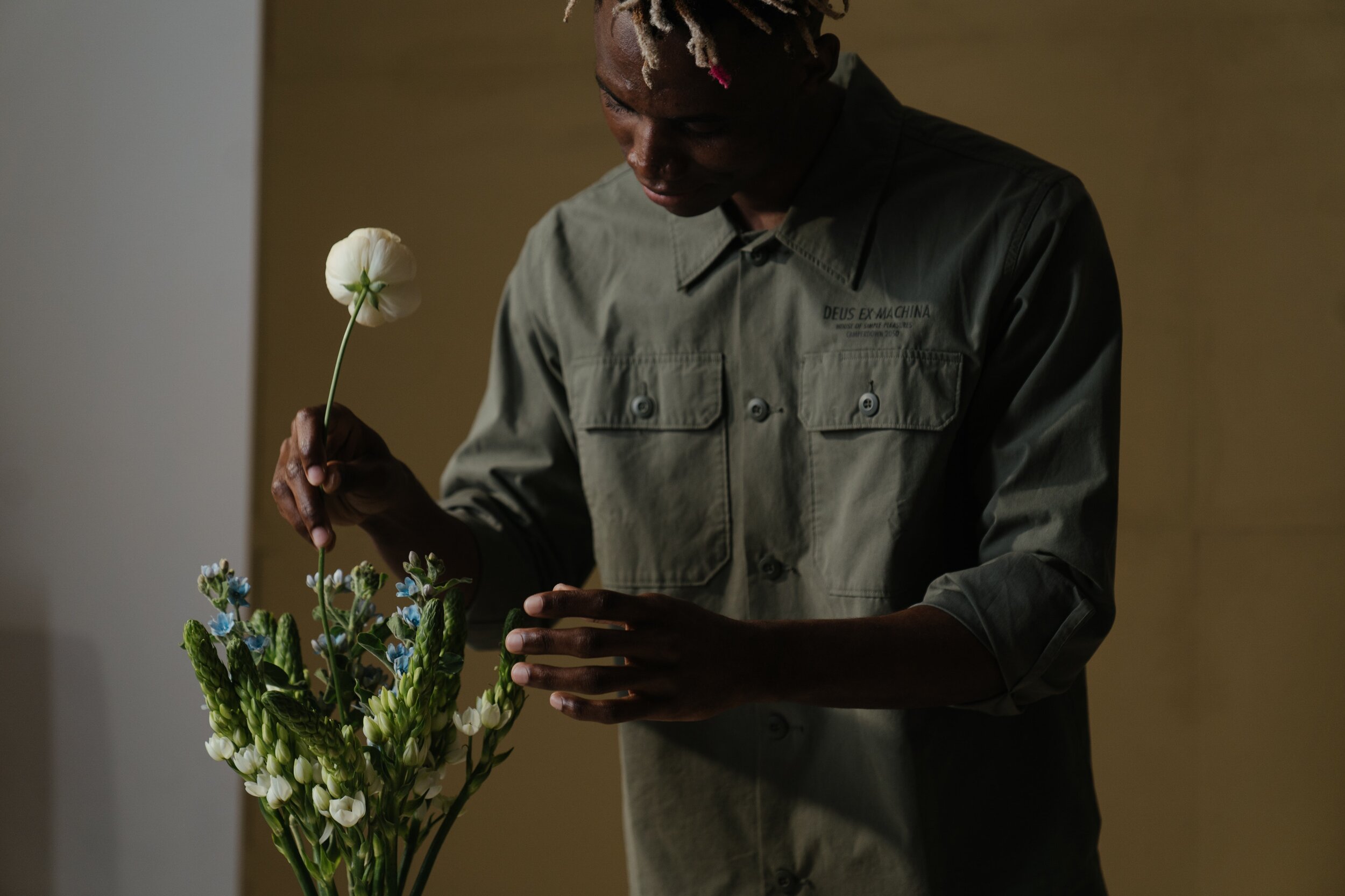
CNP Embraces Zoom Theatre (June 2020)
In June 2020, CNP collaborated with Out of Hand Theatre for a virtual reading of One in Two, a semiautobiographical play written by Donja R. Love. The following accounts from Justin C. Smith and Michael Ward share details about the genesis of the virtual play and their personal experiences with it.
Justin C. Smith:
Given that at least in the south, the [HIV/AIDS] epidemic is disproportionally impacting Black people, I'm interested in how we get more Black people involved in this conversation, particularly Black gay men. So just from my work hat and from my personal interest, I wanted to make this happen somehow. Back in May [2020], a friend of mine, Lee Osorio, who works for a theater outfit called Out of Hand that's based here in Atlanta, approached me about working with him on a project. His theater company had recently been awarded a contract from the CDC to develop an HIV stigma reduction interactive workshop for college students. And so it was in my conversations with Lee about this stigma reduction workshop that I floated the idea of doing a production of One in Two. We were just talking about HIV stigma, and I told him about this really fantastic play that I saw in New York in December. I was like, “I don't know what it takes to put on a play, but is having a virtual reading something that could be possible?”...And he was like “we can do that.” Lee was able to secure the rights to get the play, which didn't end up being that expensive to do. And so then I said, if we're going to do this, we probably need to partner with some other organizations.
The show itself was phenomenal. I think we had a little bit of a technical snafu at the beginning, but it's a show that works surprisingly well in the Zoom format just because it's a three person show with stage directions. A lot of shows, like “Hamilton” or something like that, Zoom would not work well. But for this show, it works great! Each of the actors in their own location. They pre-recorded it just to make sure there weren't any technical issues the night of. It was a show that I think didn't lose any of its power being presented virtually. I was able to see the full production in New York before COVID. But in some ways I thought that the way that it translated to the zoom screen, it actually was almost more powerful. And the conversation afterwards was just incredible, and it exceeded all my wildest dreams. From a personal standpoint, one thing really blew my mind...I got a text message from my father. Unbeknownst to me, my dad watched this play. My dad and I, we’re cool, but he is a very traditional heterosexual Black man in a lot of ways and pretty socially conservative. And while he has accepted me as a gay man, we don't really talk about it at all. And this play, it's about HIV, its about sex, all of the parts of being Black and gay that I would never talk to my dad about ever. I didn't NOT tell my dad about the show on purpose, but it just never crossed my mind that my father would be interested in anything like that at all. But he texted me and he was like, “I'm so proud of you.” And it blew my mind, because I was just like...Like if you knew the stuff my dad said to me when I was a kid and growing up, how homophobic he was... to come from a place of my dad telling me that, his exact words were “sucking dick and getting fucked in the ass is the lowest form of life on the earth.” To go from that to, I'm proud of you for organizing a play that talks explicitly about Black gay men and HIV and sex is just like, what are you, the same person? And the fact that I didn't tell him about the show! He was creeping on my Facebook and saw that I posted it and took it upon himself to register, to sign up and to sit and watch a two hour play about the lives of Black men living with HIV. That's the power of what CNP makes possible.
Michael Ward:
I am an actor who loves theater. Prior to the pandemic, I was physically present and going to auditions. I love being on stage and getting the energy from the audience and all that fun stuff. So now there's the challenge of being an actor having to work virtually. CNP was doing the reading of Donja R. Love's "One in Two". The play Is about the experiences of Black gay men living with HIV. I know these experiences. I know these characters. I was able to live my truth through these characters. "One in Two" was one of the scariest acting things that I've ever done. I'm used to being on a stage having a long rehearsal period. We had three rehearsals and I never met my co-stars in person beforehand. The play was a life changing experience for me as an actor and as a person. I'll always, always be thankful to Charles and CNP for considering me. So that was another awesome, awesome challenge in confidence-building.
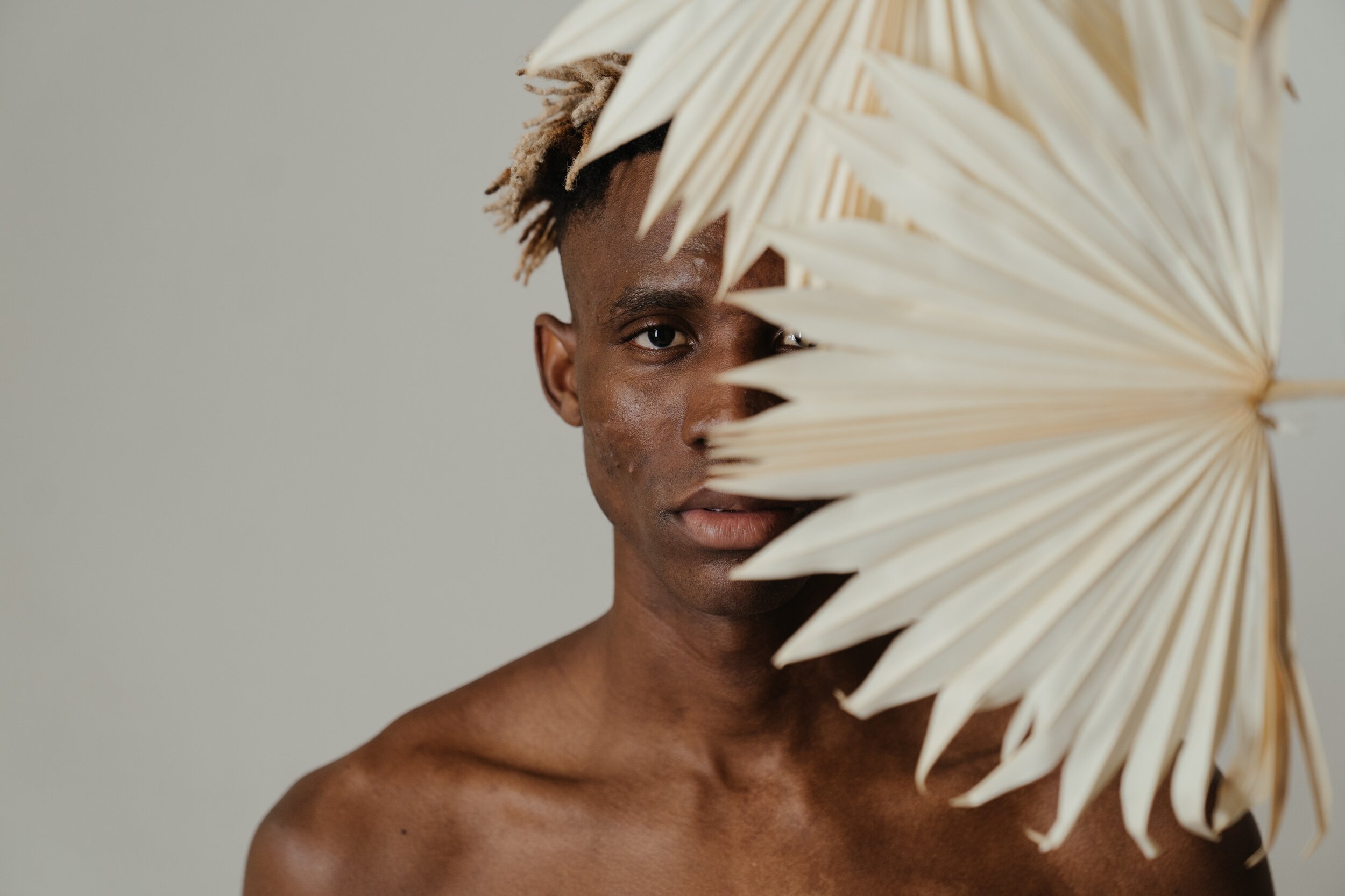
The CNP COVID-19 Survey (July 2020 - Dec. 2020)
CNP began work on a research project to capture attitudes about COVID-19 and how it’s impacting the emotional wellness and sexual health of Black gay men. The research project was conducted through an ongoing survey effort through the end of 2020.
Justin C. Smith:
It is about a larger process of increasing the capacity of CNP to do research. This would be the first foray into that world. How do we do a better job of Black gay men owning the kind of data narratives that are out there about us as a community? The vision is to be able to use this as a way to have conversations that are not rooted in shame and stigma and a lot of the ways that I think a lot of the COVID conversations have been happening. And also wanting to get a sense of what's been going on for folks, particularly Black gay men, during the pandemic.
There are typical conversations that we're seeing, not just for Black gay men, but just across the country. It's the social media shaming, it's the "Look at all these people going out to the club and look at them doing that and the other..." There's a lot of that happening. But what we also know, from HIV, is that shaming people doesn't really change their behavior. I think we wanted to enter the conversation from a place of, let's acknowledge that even if there are lockdowns or whatever, people are going to gather, people are going to party, people are going to do things that are contrary to public health guidance...But how do we have a more robust and meaningful conversation about what kinds of things can we do to imagine community in the COVID world differently? Getting an understanding of what's going on for folks can inform that conversation.

Forward
What does the future hold for CNP? The organization’s stakeholders share their perspectives.
Darian Aaron:
My hope for the organization is that it truly becomes national. That we're able to broaden our scope beyond just being a local or regional organization. I think CNP is doing some amazing work that not enough people know about. So personally, as the Editor-At-Large of The Reckoning, I definitely want to get more eyes on The Reckoning and the content that we're producing. There's a lot of moving parts. We have CNPTV. We have CNP Podcasts. We have The Reckoning. We have all the work that we're doing on the CNP side, the Bayard Rustin Summit that's going to be happening next year. And we're doing some amazing work, and I really feel like CNP should get more recognition than it does. So hopefully going forward we'll see a change in that area.
Johnnie Kornegay:
I see the future of the organization evolving into a media organization with us producing and spearheading quality content. Outside of the digital world, I see that may be a space where we do some impactful work, but I definitely see CNP and our narrative change work moving into having conversations about what does a TV show look like? What does a documentary look like? What does a film look like? Also literary work, literature is so important to CNP, and I can definitely see that in the future. I don't think our work to train our communities and provide resources will truly ever stop. I don't think that's a thing. I don't think that the work that we're doing in terms of policy, I don't ever think that will completely stop because we can't completely stop those things. But I do think that the future will see us lean really heavily into media and storytelling as a way to shift the narrative about Black gay men.
Monte J. Wolfe:
One, I'm looking forward to us being able to be in a different place where we can be in person and talk about it all in person - in terms of having not just survived it, but to share how we got through it all. I think so much of what we experience as Black people and Black queer people, while it might have served us at some point, I’m personally just tired of dealing in these narratives that are so steeped in struggle, lack, fear and doubt. But I feel like being on the other side of this and being able to tell these stories and talk about what we're experiencing right now in these moments and being able to come back to - well not “to normal” because the normal is gone, that's over. But creating a new normal, almost like a new regime of what this is going to look like in terms of us being able to tell our stories, in terms of being able to speak our truth, in terms of being able to push back on a lot of this foolishness that's happening with government, with the police, and all these other kinds of things. It’ll be a good feeling being able to thread that needle and to just take back our power.
Justin C. Smith:
On one level, this year has been such a total disaster, just because of everything, but what's amazing is that I can still look back on the year and find things that I feel like were wins. And I think for me, what is telling about my experience with CNP is that, what I perceive as my biggest personal win this year was in partnership with CNP. And that association is really strong. I look back on the things that were good and those things are affiliated with CNP. The one and two [virtual staged reading] that was the bright spot of 2020 for me. So, yeah, so I guess what I'll say is, you know, 2020 has been terrible, I hate it, I hate it here. But even amidst that struggle and horribleness, like, there are still things to find joy and to be proud of… as we close out 2020, I am choosing...it's hard, but I'm choosing to have the optimistic spirit about what next year will bring. I am very nervous about the next couple of months and this crazy non-transition we're having…But I'm also trying to balance that with the knowledge that even in the darkest parts of this year, there were wins. I want to take those with me into 2021.
Charles Stephens:
So what is the role of CNP in a time of catastrophe? I mean, we've navigated it. We pivoted to digital engagement, which wasn't super hard because we were already kind of doing that in a way. We had a chance to really focus our mission and vision and values. The work continued. We continued and we will, as long as we are able to, fight for what we believe.
Make A Donation
CNP was founded to answer the call put forth by Bayard Rustin, Essex Hemphill, Marlon Riggs, and James Baldwin. Your generous donations help to support this work and to further the mission of CNP.
